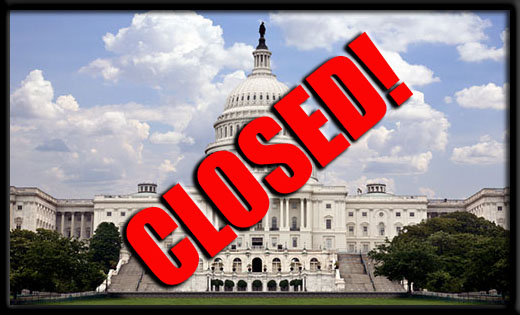From a public relations, communications, or any other point of view, it’s hard to find much positive in the Congressional wrangling that devolved into a government shutdown last night. A quick overview of traditional media showed plenty of “he-said, she-said” punditry, message-point-stuffed interviews with elected officials, and a few polls showing that the American people were – wait for it – thoroughly disgusted by the shutdown showdown.
The frenzy took over major social platforms, with Twitter’s trending topics featuring dueling hashtags #HarryReidShutdown and #ShutDownTheGOP. Some PR-savvy Representatives tweeted that, when the shutdown caused government workers to be furloughed, they would forgo their own salaries. It was a nice gimmick; pity Rep. Sean Duffy, the reality-star-turned-congressman. When aggressively and repeatedly questioned on CNN about whether he’d defer his own pay, Rep. Duffy could only stammer out his talking points.
Winners
Republican governors. Basically, any member of the GOP who was able to remain above the fray probably comes out ahead here. N. J. Governor Chris Christie’s criticism of both parties made him sound like the only adult in the room full of tantruming toddlers.
Senator Ted Cruz. This one is arguable, but I’d say that Cruz accomplished what he set out to do. Although he was plenty demonized by Democrats and others for his 21-hour faux filibuster on the Senate floor, it earned him enormous visibility, right down to the Dr. Seuss soundbites. For some, he’s the new face of the party, and a 2016 run seems inevitable.
The Affordable Care Act. President Obama’s centerpiece legislative achievement has not only survived, it might have even benefited from the brouhaha. In fact, some early technical glitches around the opening of the online health exchanges would probably have received far more attention if they hadn’t been eclipsed by partisan squabbling.
Losers
John Boehner. As was widely reported, Boehner showed that he has absolutely no control over his own caucus. After all, hammering out a consensus IS the Speaker’s job, so this one looks particularly helpless and hapless.
President Obama. POTUS probably belongs on both lists, since he has communicated with consistency and statesmanship around the budget issues, but I’m placing him here for balance, since entities like Congress, the American people, and all government workers are a bit obvious for analysis. Although the President made a resonant speech Monday in which he outlined the reasons he wouldn’t and shouldn’t negotiate on Obamacare, the brinkmanship pointed out the White House’s failure to fully explain the Affordable Care Act and sell its benefits to the public in the months that preceded the shutdown.
The Tea Party. Though it succeeded in triggering the government shutdown that many members had promised since they were elected in 2010, the party may have overplayed its hand. According to a CNN poll ending September 29, 54% of Americans disapprove of it, and Gallup reports that its strong opponents outnumber strong supporters for the first time. The word “extremist” has crept into the majority of news accounts, and when your most common descriptor is the same one used to describe foreign terrorists, it might mean you have a PR problem.
